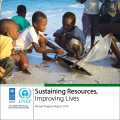
The report features the achievements of the Initiative in each of the major areas of work: coordination across government institutions; cross-sector economic, social, and environmental assessments to inform national, local, and sectoral policy and planning; supporting fiscal reform; promoting gender equality and social inclusion; South-South cooperation and partnerships; and support to put in place building blocks for the implementation of the 2030 Agenda for Sustainable Development.
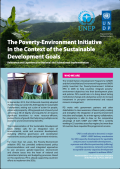
This brochure presents the overall Poverty-Environment Initiative (PEI) integrated approach and tools to implement the Sustainable Development Goals (SDGs) and illustrates these with country examples.
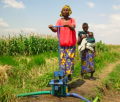
This policy brief draws on the findings from the report and makes an economic case for investing in ENRs to reduce poverty within the context of what is generally known as the ‘poverty-environment nexus.’
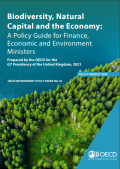
This guide provides key findings and policy recommendations in the areas of mainstreaming and measuring biodiversity, aligning budgetary and fiscal policy with biodiversity, embedding biodiversity in the financial sector, and improving biodiversity outcomes linked to international trade.
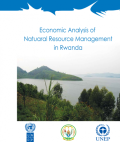
This economic analysis report is structured around two arguments. Firstly, natural resources and ecosystem services in particular have significant contribution to economic growth and poverty reduction. Secondly, failure to manage natural resources, conserve and protect the ecosystem will result in costs of degradation that will compromise medium and long term sustainable development. An ecosystem services approach has been used which is capable of capturing aspects of the environment and natural resources that are usually neglected either because they do not have market values or they cannot readily be quantified. The approach is supported by Case Studies of Rugezi Wetlands and Gishwati Forest.
